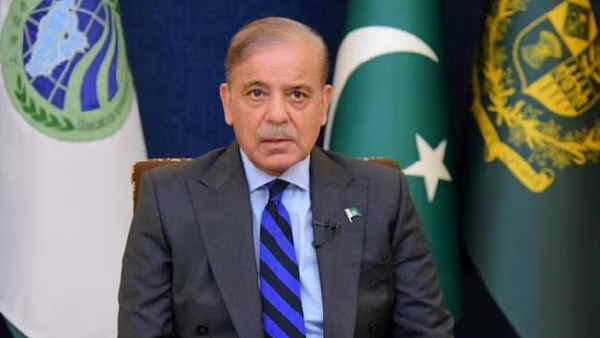Pakistan’s Prime Minister Shehbaz Sharif Acknowledges Indian Missile Strikes, Reiterates Kashmir and Water Treaty Concerns
For the first time, Pakistan’s Prime Minister Shehbaz Sharif has conceded that Indian ballistic missiles struck the Noor Khan Airbase and other locations during the recent escalation following Operation Sindoor. Until now, Islamabad had steadfastly denied any significant damage to its military infrastructure. In a rare admission, Sharif revealed that Army Chief General Asim Munir personally informed him of the attacks in the early hours of May 10.
Direct Notification of Missile Launch
On Yaum‑e‑Tashakur (Thanksgiving Day), observed nationwide in remembrance of Pakistani soldiers killed in the Indian strikes, Prime Minister Sharif recounted the moment he received the alarming news. “At approximately 2:30 a.m. on the night of May 9–10, General Asim Munir contacted me via our secured line,” Sharif said. “He reported that India had launched ballistic missiles, one of which impacted the Noor Khan Airbase, while others fell in various areas across the country.” This confirmation contradicts earlier official statements that downplayed any damage to air force installations.
Contradicting Earlier Denials
Sharif’s admission exposes a significant gap between Pakistan’s prior public narrative and the facts on the ground. Until now, Pakistani authorities had claimed minimal to no damage from India’s retaliatory operations, dismissing reports of hits on military sites. In contrast, the Indian Army itself announced the following day that it had successfully targeted nine terrorist bases within Pakistan, asserting precise strikes on all designated locations.
Renewed Call for Peace Talks—with Kashmir on the Table
Despite the hostilities, Prime Minister Sharif used the Thanksgiving Day platform to appeal once more for dialogue with New Delhi. He emphasized that any meaningful discussion must address all outstanding disputes, chief among them the Kashmir question. “India and Pakistan have fought three wars, and each ended without resolving our core disagreements,” Sharif noted. “It is only by sitting down like peace‑loving neighbors that we can find solutions for Jammu and Kashmir—and pave the way for lasting stability in South Asia.”
Commitment to Counterterrorism Cooperation
Addressing concerns about regional security, Sharif pledged Pakistan’s full cooperation in the global fight against terrorism, contingent upon a genuine peace process. “Without resolving our bilateral issues, there can be no durable peace here,” he said. “But if trust is restored, Pakistan will stand shoulder‑to‑shoulder with India and other partners to eradicate extremist threats.”
Tributes to Fallen Soldiers and International Support
In Islamabad, the nation honored its fallen troops with a 31‑gun salute in the capital and 21‑gun salutes in provincial capitals. Sharif extended gratitude to friendly nations for their diplomatic backing, singling out former U.S. President Donald Trump for his role in brokering the ceasefire that halted the latest round of exchanges.
Indus Water Treaty: A Lingering Strategic Concern
Beyond military and diplomatic overtures, Pakistan’s leadership remains deeply worried about the future of the Indus Water Treaty. “New Delhi has made it clear that, until terrorism originating from Pakistani soil ceases, talks will be limited to Pakistan‑Occupied Kashmir and cross‑border militancy—and the water treaty will remain on hold,” Sharif warned. While India cannot halt the flow of the Indus system outright, its leverage under a bilateral agreement poses an ongoing risk to Pakistan’s water security.
Reaffirming Nuclear Responsibility
Finally, Pakistan’s Foreign Ministry addressed recent international speculation regarding its nuclear arsenal. Spokesperson Shafqat Ali Khan accused India of distorting facts to justify its own aggression and sow doubt about Pakistan’s commitment to non‑proliferation. “Pakistan remains a responsible nuclear state,” he affirmed. “We are dedicated to maintaining a credible deterrent while actively working to reduce tensions and safeguard regional stability.”
